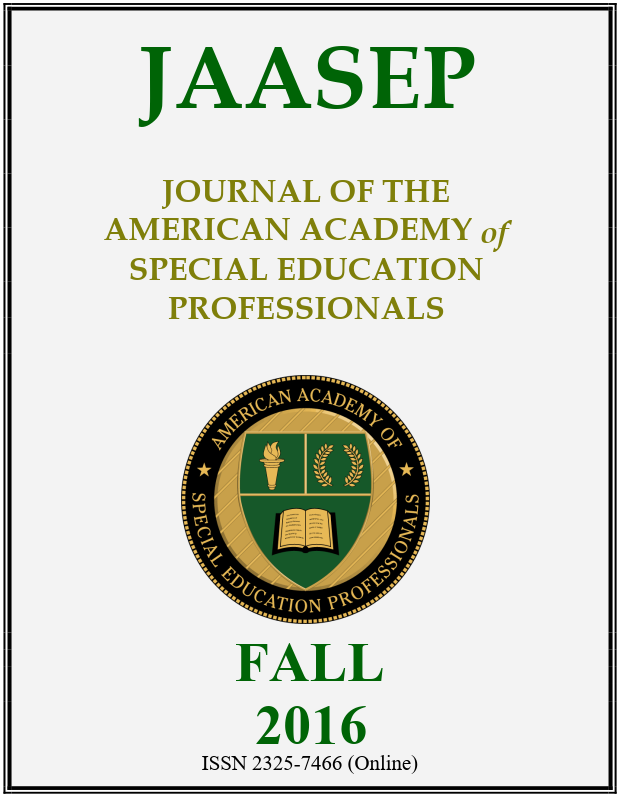Effects of Inclusion Classrooms on Academic Achievement of Students with Learning Disabilities and Students in General Education
Avramidis, E., Bayliss, P., & Burden, R. (2000). A survey into mainstream teachers’ attitudes towards the inclusion of children with special needs in the ordinary school in one local education authority. Educational Psychology, 18(9), 210. DOI: https://doi.org/10.1080/713663717
Evans, C. W. (2006). Towards inclusive teacher education: Sensitizing individuals to how they learn. Educational Psychology, 26(4), 499-518. DOI: https://doi.org/10.1080/01443410500342484
Kinney, S. (2008).On learning disabilities. Part One. Available from ERIC database. Retrieved from http//stevekinny.net/post/506193608on-learning-disabilities-part-one. Luster, J. N., & Durrett, J. (2003, November). Does educational placement matter in the performance of students with disabilities? Paper presented at the meeting of the Mid-South Educational Research Association, Biloxi, MS.
Manset, G., & Semmel, M. I. (1997). Are inclusive programs for students with mild disabilities effective? A comparative review of model programs. The Journal of Special Education, 31(2), 155-180. DOI: https://doi.org/10.1177/002246699703100201
McDonnell, J., Thorson, N., Disher, S., Mathot-Buckner C., Mendel, J., & Ray, L. (2003). The achievement of students with developmental disabilities in inclusive settings. Education and Treatment of Children, 31(1), 220-240.
Minke, K. M., Bear, G., Deemer, S. A., & Griffin, S. M. (1996). Teachers' experiences with inclusive classrooms: Implications for special education reform. Journal of Special Education, 30(2), 152. DOI: https://doi.org/10.1177/002246699603000203
Overton, T. (2004). Promoting academic success through environmental assessment. Intervention in School and Clinic, 39(3), 147-153. doi:10.1177/10534512040390030301 DOI: https://doi.org/10.1177/10534512040390030301
Saint-Laurent, L., Dionne, J., Giasson, J., Royer, E., Simard, C., & Pierard, B. (1998). Academic achievement effects of an in-class service model on students with and without disabilities. Exceptional Children, 64(2), 239-253. DOI: https://doi.org/10.1177/001440299806400207
Signor, S. L., Leblanc M., & McDougal, J., (2005). Conducting district-wide evaluations special education services: A case study. Journal of Psychology, 43(1), 109-115. DOI: https://doi.org/10.1002/pits.20134
Tennessee Department of Education (2013). TCAP Achievement Grades 3 – 8. Retrieved from http://www.state.tn.us/education/assessment/acheivement.shtml
United States Commission on Civil Rights. (2005). Minorities in special education. Retrieved from http://www.usccr.gov/pubs/MinoritiesinSpecialEducation.pdf#xml=http://www.dmssearch.gpoaccess.gov/PdfHighlighter.aspx?DocId=171&Index=D%3a%5cWebsites%5cUseIndex%5cUSCCR&HitCount=9&hits=4a1f+4a20+4a21+4a22+4a23+4a24+4a25+4a26+4a27+
